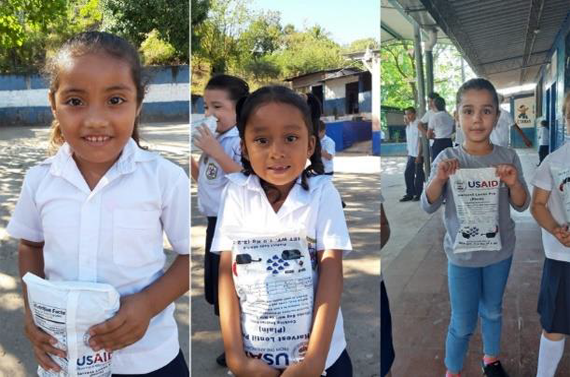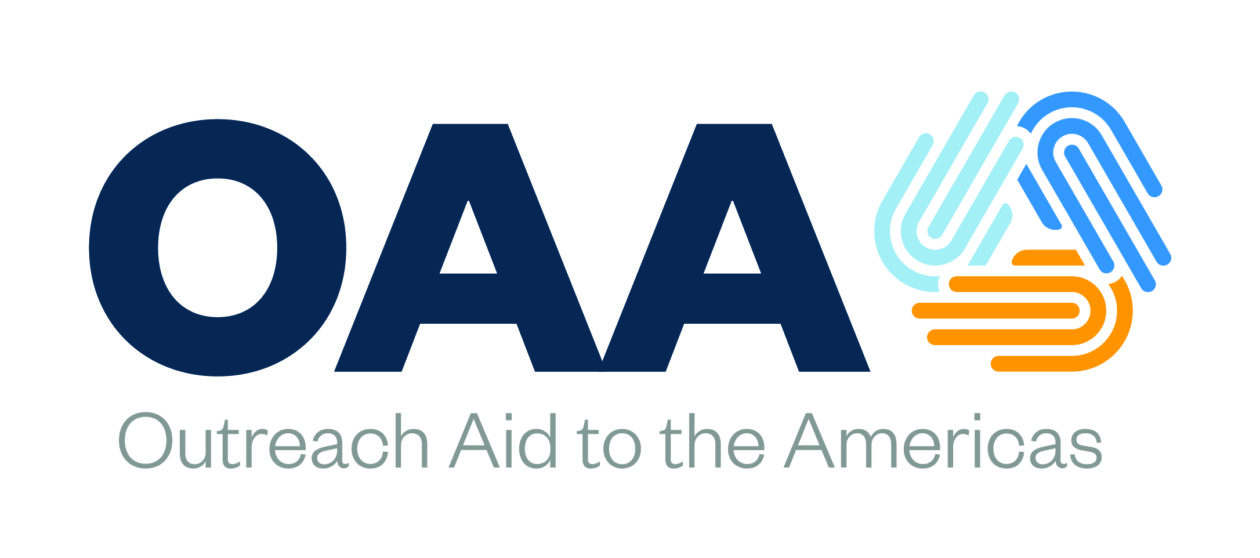LAC PROGRAMS UPDATE
Serving Central America, Cuba and The Caribbean
May 23, 2019
Project
USAID / Food for Peace (FFP)
Food Relief for Vulnerable Persons in El Salvador
Country
El Salvador
Description
A total of 15,890 Salvadorians, including children, pregnant and lactating women, elderly and people with disability, all from the most vulnerable areas, are receiving prepacked nutritious meals to fight their malnourished nutritional status, most of them suffering hunger and thus with their mental development critically affected. OAA and its local partner Asociación AGAPE in El Salvador are working to improve their well-being. Beyond meeting the nutritional and caloric needs of these at-risk groups, in-school feeding programs incentivize attendance by students who are otherwise prone to drop out at an early age due to reasons of family poverty or pressure from criminal gangs who try to recruit youth.

Project Synopsis
In partnership with USAID/FFP, OAA is delivering 150 metric tons of Harvest Lentils Pro from Breedlove Foods to El Salvador, where Asociación AGAPE and the Baptist Church of Apopa (part of OAA’s network of Central American faith-based organizations) are distributing shelf-stable prepacked bags of the food to the vulnerable populations living in Acajutla, Izalco, Sonsonate, San Francisco Mendez, San Juan Opico, and Apopa. The distribution takes place in strategic distribution locations, such as schools, health clinics and community kitchens.
The project has three main expected results: 1) improved well-being of vulnerable groups by reducing impacts of malnutrition, 2) improved school attendance rates among school-aged youth, and 3) increased capacity of the partners to undertake humanitarian response activities.
The Need
Many Salvadorians have been forced to leave their homes by criminal gangs and the high rate of violence. They often choose migration to the U.S. as the only viable option. The complexity of the causes of poverty, hunger and malnutrition have contributed to the phenomena of internal displacement and outward migration. A significant number of areas in El Salvador continue to be the areas where criminal gangs, extreme poverty and food insecurity have been drivers of internal and outward migration. These communities are in great need of food to meet their daily caloric needs.
